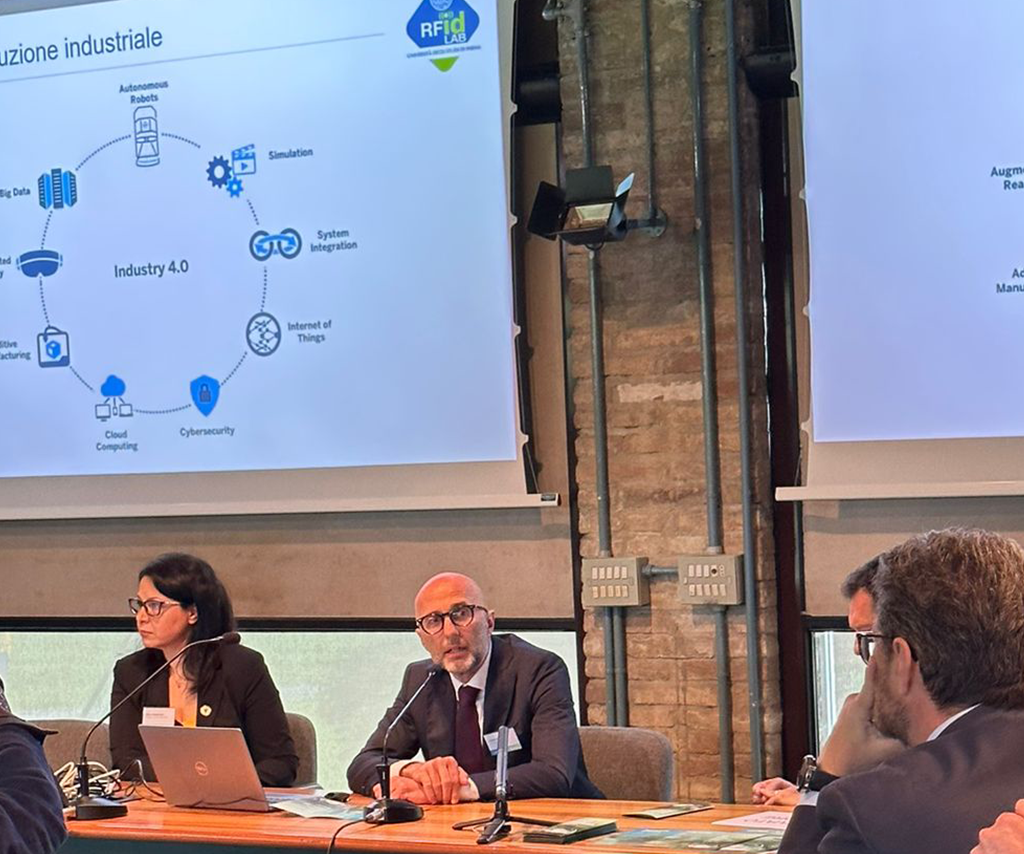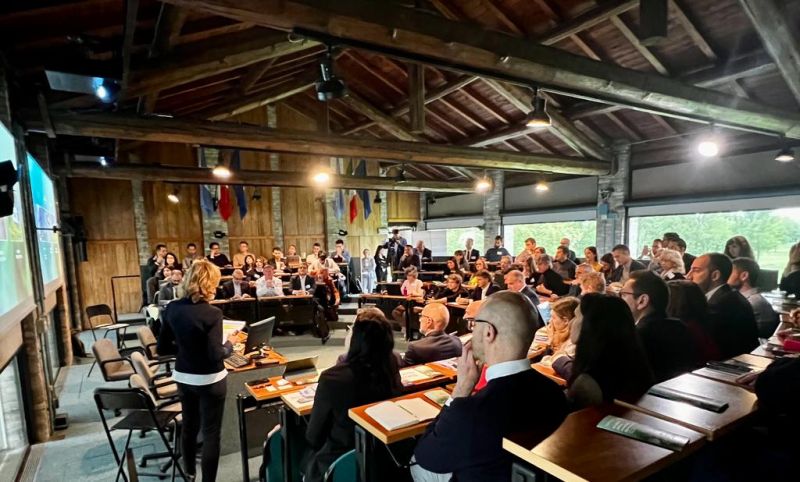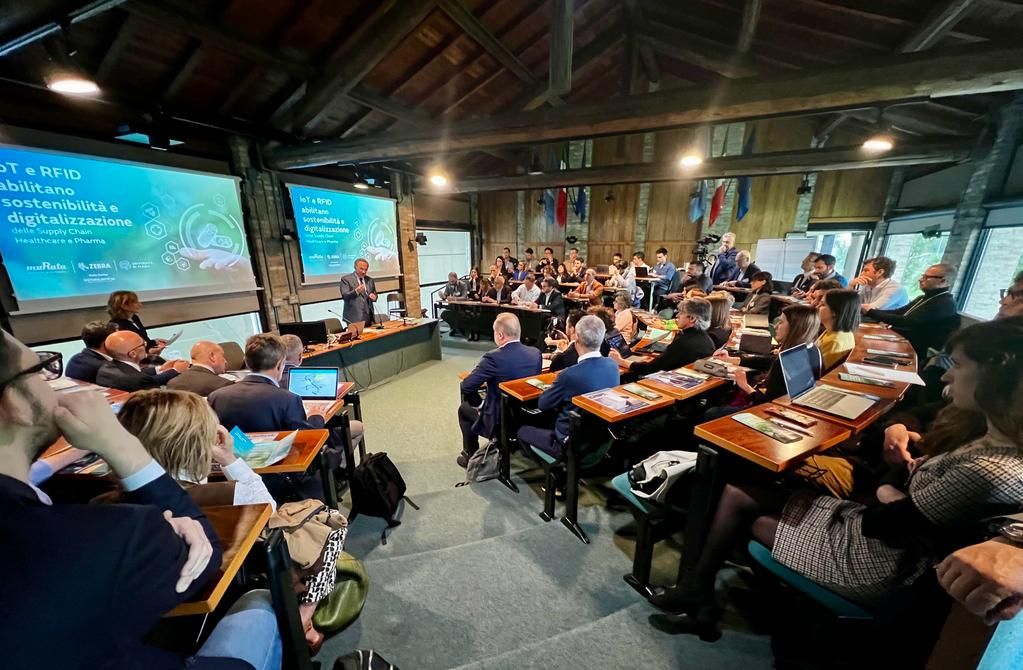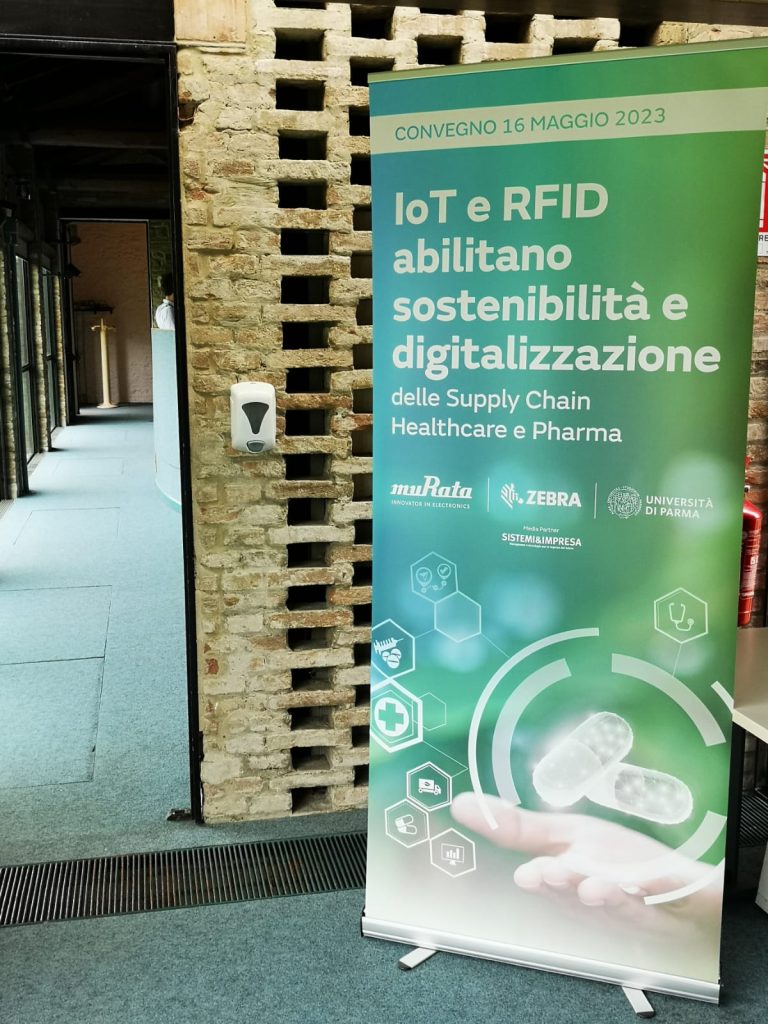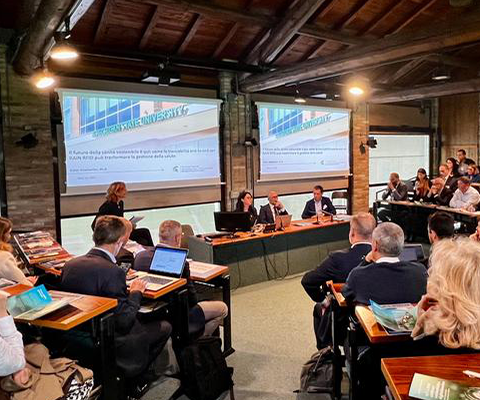On May 16, the conference “IoT and RFID enable sustainability and digitalization in the Healthcare and Pharma Supply Chains” was held at the Congress Centre St. Elisabetta at the University of Parma.
The conference organized by the companies Murata ID Solutions and Zebra Technologies in collaboration with RFID Lab of the University of Parma examined and discussed how IoT and RFID technologies support the Healthcare and Pharma sector by improving visibility, efficiency, and sustainability of the supply chains.
With the participation of Healthcare and Pharma institutions and companies, the conference was opened by the Rector of the University of Parma who welcomed the delegates underlining the importance of the conjunction of academic research and technology transfer, which is at the basis of the “RFID and Sustainability” research conducted by RFID Lab of the University of Parma in collaboration with Michigan State University and presented during the conference.
Research results reveal RFID’s positive environmental impact
During the first presentation of the day, Prof. Antonio Rizzi and Prof. Giuseppe Vignali, from RFID Lab, and Prof. Bahar Aliakbarian, from Michigan State University, discussed the results of the international research determining how the application of RFID technology in the Healthcare and Pharma sector enables sustainability (tons of CO2 saved per year) when utilized to monitor and track packages of products or individual items throughout the supply chain.
The professors presented the EROI tool that was developed to measure the environmental return on investment of the application of RFID technology by quantitatively comparing on the one hand the environmental impact of RFID technology (the production, transport and disposal of the RFID tag applied to the product) and on the other hand the environmental savings deriving from the benefits related to the implementation of the technology (reduction of lost or expired products, reduction of empty runs).
The researchers tested the tool on two Healthcare and Pharma projects comparing CO2 emitted and CO2 saved. The results show that the use of the technology, which allows real-time monitoring and traceability of all products labelled with an RFID tag, has led to significant environmental savings (in terms of tons of CO2 saved per year).
The greatest savings are obtained thanks to a reduction of shrinkage (product losses due to thefts and expired products) stock reduction (increased inventory accuracy reduces the need to carry safety stock) and transport reduction (because of less shipment errors as well as stock reduction).
Digital technologies are pivotal for improving Healthcare & Pharma Supply Chains
In addition to the presentation of the academic research, the conference hosted speakers from institutions and companies, such as Politecnico di Torino, IRCCS Azienda Ospedaliero Universitaria di Bologna, Eurodifarm (part of the DHL group), PHSE and the Dafne Consortium, who discussed the importance of digital technologies for greater transparency, traceability and monitoring of the processes of the healthcare and pharma supply chains.
From the re-engineering of processes in healthcare to the optimization of the entire supply chain of medicines and medical devices, the speakers underlined the significant role of innovative technology but also the importance of transversal commitment and a collaborative approach between all the actors of the supply chain. Technology alone cannot make a difference; technological innovation must be supported by the right organizational structure and mutual collaboration.
Technologies enable sustainability
The conference highlighted how sustainability can be enabled by digital technologies. Academic research and business cases all underlined how IoT and RFID technologies are an important lever to make the Healthcare and Pharma Supply Chains more transparent and traceable and, consequently, also safer and more sustainable.


